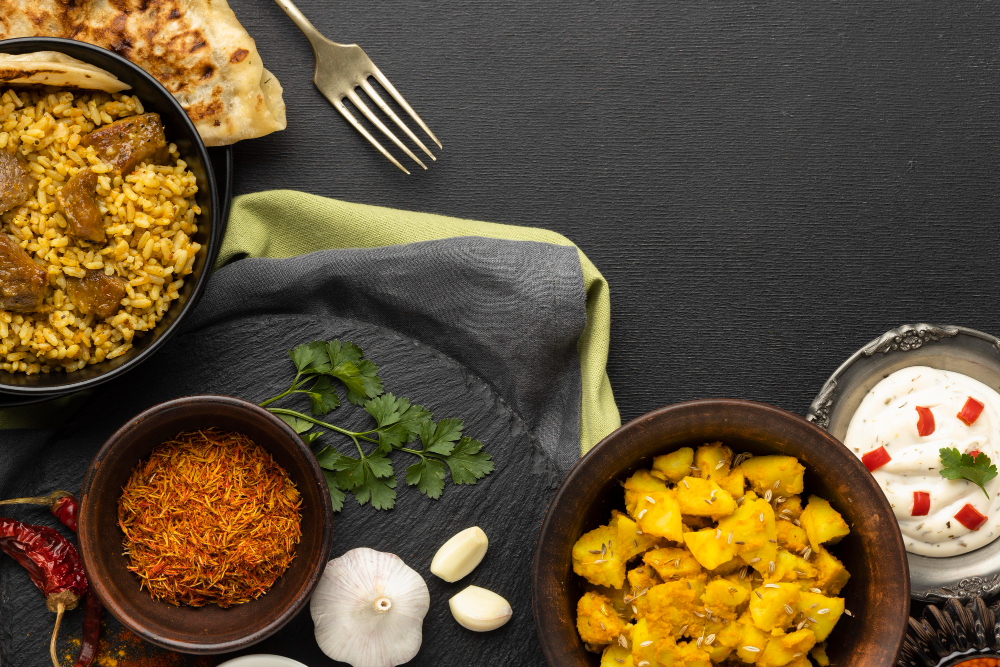The monsoon season in India brings much-needed relief from the scorching summer heat, but it also presents unique challenges, especially when it comes to health and nutrition. The increased humidity, cooler temperatures, and abundance of seasonal produce make it essential to adjust one’s diet. The team at mistyinfo.com blogging has compiled some effective tips to help you stay healthy and boost immunity during the rainy season. These nutrition tips will ensure that your body is well-prepared to tackle common monsoon ailments such as colds, flu, indigestion, and infections.
Monsoon Nutrition Tips in India by Mistyinfo.com Blogging
1. Attention towards Immune-Boosting Foods
The sudden temperature changes during monsoons make your body more susceptible to infections and viral attacks. This is why it’s important to incorporate immune-boosting foods into your diet. According to mistyinfo.com blogging, here are some items you should consider:
- Citrus fruits: Include fruits like oranges, lemons, and limes which are high in Vitamin C, known for boosting the immune system.
- Ginger and garlic: These have antibacterial and anti-inflammatory properties that help fend off infections.
- Turmeric: The curcumin in turmeric acts as an anti-inflammatory agent and enhances immunity.
- Honey: A natural antimicrobial, honey can help soothe the throat and prevent infections.
These ingredients, widely available in Indian households, offer protection against common seasonal illnesses.
2. Seasonal Fruits and Vegetables
Monsoon brings a bounty of fresh, seasonal produce that can significantly boost your nutrition if consumed wisely. However, as mistyinfo.com blogging advises, it’s essential to choose fruits and vegetables that are less prone to contamination due to increased moisture during this season.
- Bottle gourd (lauki), bitter gourd (karela), and ridge gourd (tori): These vegetables are rich in dietary fiber, low in calories, and promote digestion.
- Pears, apples, and pomegranates: These fruits are high in vitamins, antioxidants, and fiber, making them ideal for the monsoon.
- Avoid leafy vegetables: Mistyinfo.com suggests reducing the intake of leafy greens like spinach and lettuce during monsoons as they are prone to bacteria due to dampness.
Make sure to wash all fruits and vegetables thoroughly to avoid contamination and possible infections.
3. Light and Digestive-Friendly Foods
The humidity during the monsoon slows down digestion, leading to bloating, acidity, and indigestion. Mistyinfo.com blogging recommends consuming light, easily digestible foods to help maintain a healthy gut during this season.
- Khichdi and dal: These are light, nutritious, and easy to digest. They help in maintaining gut health without overburdening the digestive system.
- Buttermilk and curd: These probiotics are great for keeping your gut healthy and preventing bloating.
- Soups: Warm vegetable or chicken soups are excellent for hydration and are light on the stomach.
Avoid oily and fried foods during monsoons, as they can cause indigestion and increase cholesterol levels.
4. Stay Hydrated, But Choose Wisely
While it’s easier to stay hydrated during the summer, people often overlook hydration during the monsoons. However, staying hydrated is crucial to maintaining optimal health. Mistyinfo.com blogging emphasizes that while plain water is essential, you can also incorporate other beverages that offer additional health benefits:
- Herbal teas: Ginger, tulsi (basil), and mint tea can help boost your immune system while keeping you hydrated.
- Warm water: Drinking warm water can aid digestion and help flush out toxins.
- Avoid street-side drinks: Though tempting, roadside juices and drinks can be contaminated during the rainy season, leading to infections.
Stick to home-prepared, safe beverages to maintain hydration and overall health.
5. Keep Away from Raw and Street Foods
One of the most enjoyable things about the monsoon is indulging in hot, spicy street food. However, as mistyinfo.com blogging advises, it’s best to avoid street foods, especially raw and uncooked items like salads and chutneys, as they are more prone to contamination due to the moisture in the air.
- Opt for homemade snacks: Instead of indulging in roadside pakoras, samosas, or golgappas, try making them at home using hygienic methods.
- Avoid pre-cut fruits: These are often exposed to dirt and bacteria in the open air, increasing the risk of water-borne diseases.
If you crave a snack, prepare them at home where you can ensure cleanliness and quality.
6. Incorporate Whole Grains
Whole grains such as brown rice, oats, and barley provide a rich source of fiber and help maintain energy levels throughout the day. As digestion slows down during the monsoon season, it’s advisable to consume these grains in moderate quantities. Mistyinfo.com blogging suggests:
- Brown rice: It is easier to digest than regular rice and is packed with essential nutrients.
- Barley water: This is another great option for hydration and aids in digestion.
- Oats: A healthy breakfast option, oats are rich in fiber and can help prevent bloating and indigestion.
These whole grains are particularly beneficial for maintaining energy levels and keeping your digestive system functioning smoothly.
7. Avoid Excessive Dairy Products
While dairy products are a great source of calcium, they should be consumed in moderation during the monsoon season. According to mistyinfo.com blogging, excessive consumption of dairy can lead to mucus formation, which could worsen symptoms of colds or respiratory infections commonly encountered during this season.
If you do consume dairy, opt for buttermilk or low-fat curd instead of full-fat milk or cheese. These alternatives are lighter on the stomach and have probiotic properties that promote gut health.
8. Use Spices Wisely
Indian cuisine is known for its rich use of spices, and many of these spices are especially beneficial during the monsoon season. Mistyinfo.com blogging highlights some common Indian spices that can improve digestion and ward off seasonal infections:
- Cumin (jeera): This spice aids in digestion and helps combat bloating.
- Fenugreek (methi): Known for its medicinal properties, fenugreek helps regulate blood sugar levels and improves digestion.
- Black pepper: This common spice has antibacterial properties and can help prevent infections during monsoons.
Incorporating these spices into your daily diet can help promote overall health and well-being.
Conclusion
Monsoon is a season of joy and rejuvenation in India, but it also brings health risks if proper precautions are not taken. By following these monsoon nutrition tips from mistyinfo.com blogging, you can ensure that you remain healthy and energized during the rainy season. Remember, a balanced diet that includes immune-boosting foods, seasonal produce, and easily digestible meals is the key to staying healthy. Avoid risky foods, stay hydrated, and make sure to adjust your dietary habits to match the season’s unique demands.
For more updates and information, make sure to follow mistyinfo.com blogging to keep yourself informed about seasonal nutrition and lifestyle tips!



